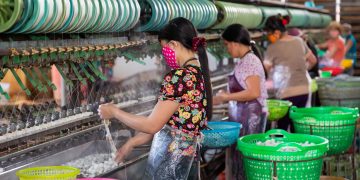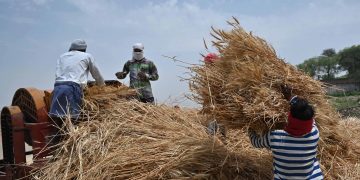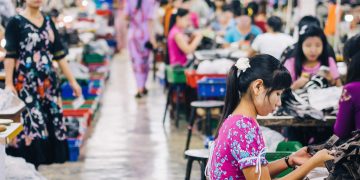Remittances are an important income source for low-income rural households in Myanmar. In their research, Xinshen Diao and Kristi Mahrt assess the impact of declining remittances caused by COVID-19 on Myanmar’s household incomes and poverty. They also estimate the financial support required to mitigate the negative effects of these impacts.
Which Myanmar industries will be hit hardest by the pandemic?
In this blog post, IFPRI researchers model the effects of the COVID-19 pandemic on Myanmar’s economy to support the design of policy interventions that can mitigate economic loss and support a sustained and robust recovery
A gender-transformative response to COVID-19 in Myanmar
In this blog post, IFPRI researchers assess how the Government of Myanmar's responses to COVID-19 can pay explicit attention to gender discrepancies to avoid unintentional harm or aggravating existing gender inequalities. They also provide recommendations to ensure an effective COVID-19 response and offer scope for lasting gender-transformative change.
Strengthening smallholder agriculture to defend Myanmar’s food security and rural livelihoods against COVID-19
There is an urgent need to anticipate the threat posed by COVID-19 to Myanmar’s agricultural sector and to rural households that depend on farming for income and for food and nutrition security. In this blog post, IFPRI researchers assess strategies to mitigate the threat and support farmers to prepare their land and plant their crops on time for the monsoon cropping season.
Exploring food security among young women in Myanmar’s garment sector
In Myanmar’s Yangon region, a significant portion of young women employed in the formally regulated garment sector is impacted by malnutrition. Through data collection at the individual, factory, and community levels, Sophie Goudet, Lwin Mar Hlaing, and Paula Griffiths assess the food and nutrition security of Yangon’s young female garment workers.




